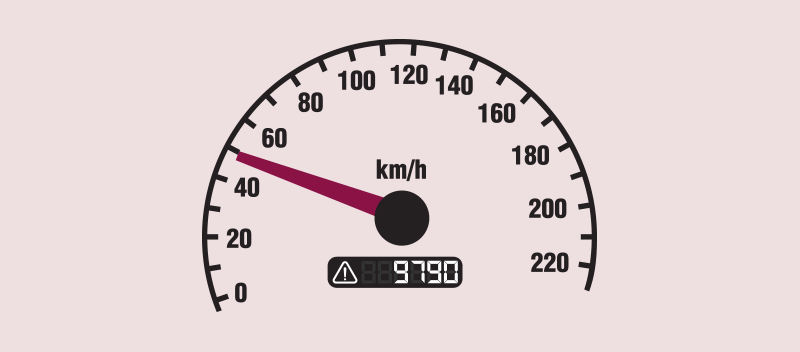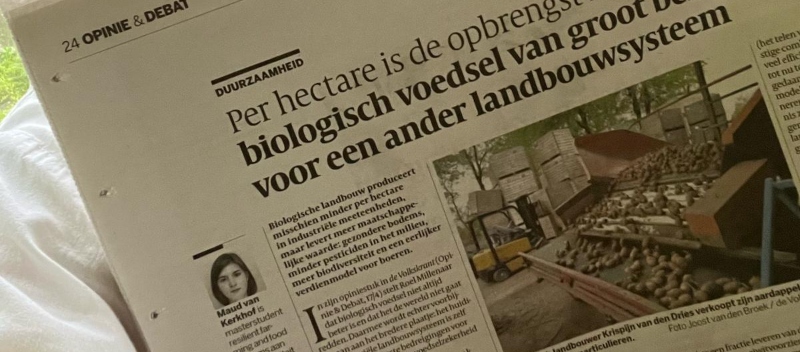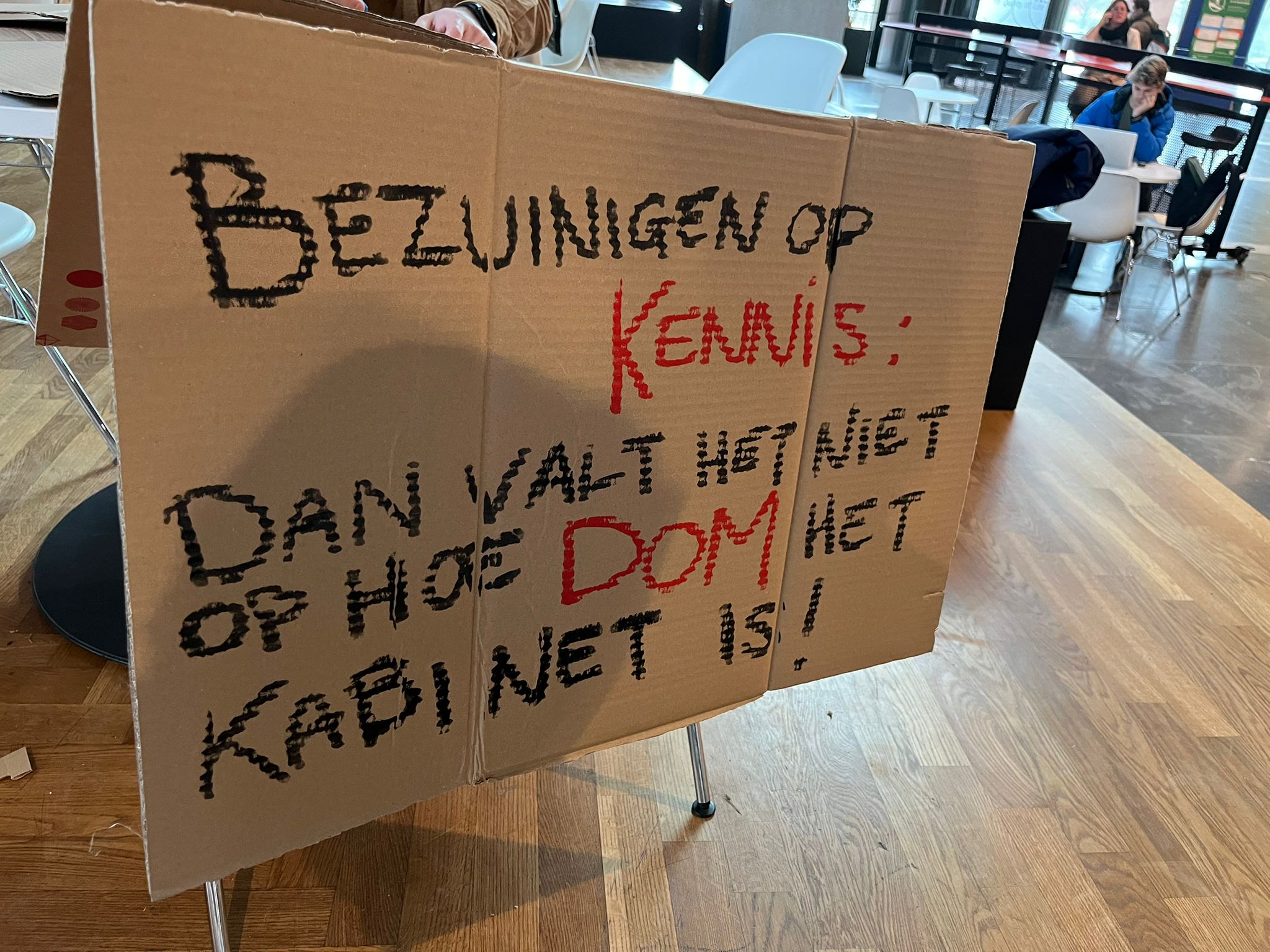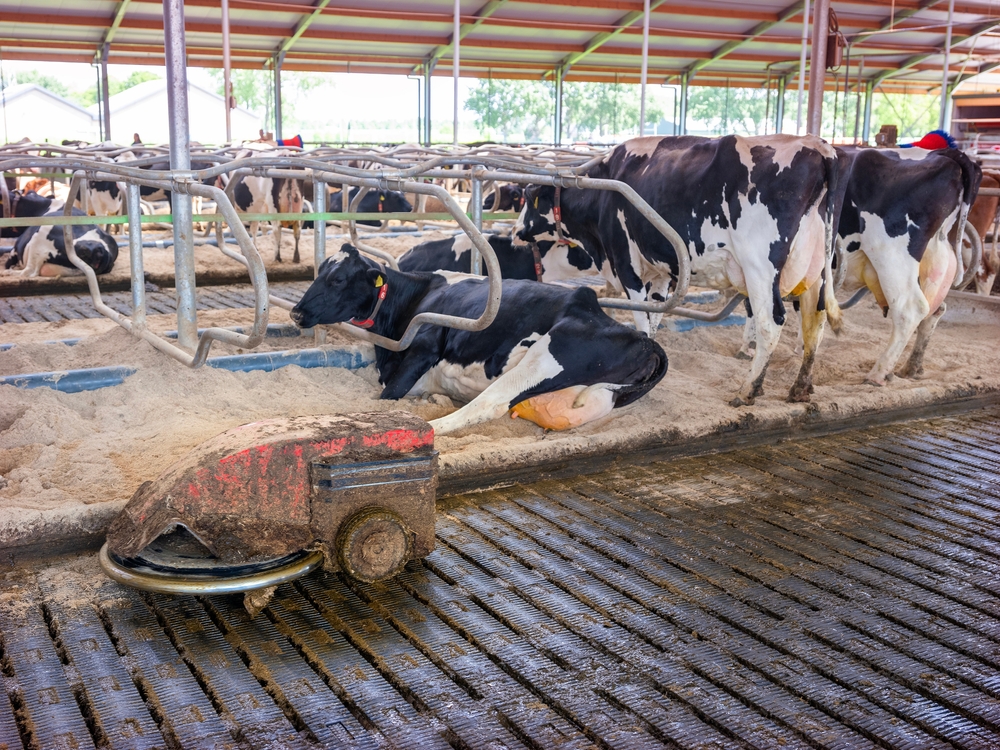‘Impose a quota on ordinary citizens too. For example, only let them drive their car 10,000 kilometres a year rather than 20,000.’ This suggestion was made recently by Professor Wim de Vries during an interview about the nitrogen crisis. Good idea?
The agricultural sector complains that the government is putting too much of the burden of resolving the nitrogen problem on farmers. Two Wageningen experts in the nitrogen debate agree: Wim de Vries, professor of Integrated Nitrogen Impact Analysis and ‘nitrogen dissident’ Han Lindeboom, emeritus professor of Aquatic Ecology. They differ fundamentally with one another in their views on the nature of this crisis and the solution, but on this point they are remarkably united. In a recent double interview (see inset), De Vries suggested imposing a kilometre quota on Dutch citizens, if only out of solidarity. Resource made some calls and asked what other people thought of the idea.
Tom Kisters
Researcher at Wageningen Economic Research
‘As a behavioural economist I understand the reasoning but a quota would be difficult to implement from a practical perspective. How would you administrate it? What would it cost to enforce the rule? I also foresee undesirable side-effects: people who live a long way from their work and can’t visit family in December because they have already used up all their kilometres commuting. Of course farmers are citizens too and would also be affected by the kilometre quota.’
Farmers are citizens too, so they will also be affected by a kilometre quota
Having said that, it would send a good message to farmers. Everyone needs to pitch in to help resolve the nitrogen problem, including ordinary citizens. But the general public is already doing that anyway, even if that is not always visible: petrol and energy are normally taxed more. The temporary reduction in those taxes is a choice by the government to scale back those incentives. When the taxes eventually go back to their normal level, the government could levy an extra surcharge and earmark that for nitrogen measures so as to give the general public’s contribution a clear frame. Symbolism is important, but I don’t think the Netherlands should just carry out measures that are mainly symbolic in their effect.’
Mayra van der Vrande
Biology Master’s student and advocate of restricted car access on campus
‘The behaviour of ordinary citizens hardly seems to be an issue in the nitrogen debate: of course we fly to our holiday destination, of course we go everywhere by car. It’s high time that the general public feel the consequences of the nitrogen surplus and change their behaviour. I would personally prefer a different approach in persuading people to change their behaviour rather than a kilometre quota as that feels like a punishment.’
Give people low-nitrogen alternatives that are so appealing they opt for them voluntarily
‘It would be better to give people low-nitrogen alternatives that are so appealing they opt for them voluntarily. For example, I hate the way the campus is designed to be so car friendly. There isn’t even a decent footpath or cycle path between Mansholtlaan and Gaia/Lumen but there are (free) parking spaces everywhere. We will never persuade people to give up their cars like this! I find it equally ridiculous to see millions of euros of public money being spent on widening roads all over the Netherlands when we know there is this huge nitrogen problem. We all need to become aware of our impact and act accordingly.’
Joost Rijk
Farm of the Future manager
‘Halving the vehicle fleet — or at least the kilometres driven — sounds like a great idea to me. It would change farmers’ perception for the better because agriculture is having to pay disproportionately for the nitrogen surplus. You could wonder, though, whether such a quota would really help the agricultural sector. A few cents added to the price of dairy products, vegetables or meat would probably do more in letting the sector tackle the nitrogen problem. At least, if that money reaches the farmers so they can use it to make their farms more sustainable, and it isn’t used to inflate profits or line other people’s pockets.’
Halving the vehicle fleet sounds like a great idea
‘But unfortunately I don’t see much chance of consumers being willing to pay more. Price increases are always tricky, especially now when there is high inflation. Even so, I think that is the solution in the end. At the moment, unhealthy, unsustainably produced food is too cheap. People have been calling on the government to do something about this for years, for example with a sugar tax or meat tax, or lower VAT on fruit and veg. Reduce the price gap compared with healthy, sustainably produced food. In the meantime, halve the vehicle fleet and close Schiphol; at least then we will be sharing the pain equitably.’
[kadertje]
Quota context
Excerpt from the double interview with Wim de Vries and Han Lindeboom in the newspaper Reformatorisch Dagblad on 10 September.
Lindeboom: ‘The government is making a huge error in not involving other sectors. Farmers are being faced with a massive task while other sectors responsible for emissions are being left alone. I think industry, aviation and traffic should also be forced to halve their emissions. That would make people appreciate what the plans mean.’
De Vries: ‘I totally agree, Han. We differ in our opinions scientifically but we agree on a lot of practical matters. Other sectors should do their bit purely out of solidarity. Then the general public would know what it means to have a 50 per cent reduction in nitrogen oxides from road traffic by 2030. I am not convinced that can be achieved through technology, so you should impose a quota on every citizen. For example, they should only be allowed to drive their cars 10,000 kilometres a year, not 20,000.’

 Illustration Shutterstock
Illustration Shutterstock 

